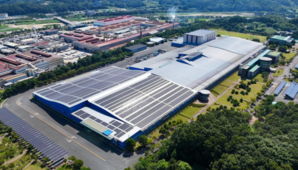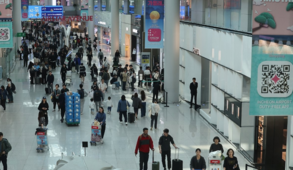
[News Space=Reporter seungwon lee] Daewon Pharmaceutical has been emphasizing ethical management through the introduction of the Fair Trade Voluntary Compliance Program (CP) and the Anti-Corruption Management System (ISO37001), but it is just empty talk, and its effectiveness is even being questioned due to repeated quality issues and legal risks.
In recent years, Daewon Pharmaceutical has been criticized by the industry and society due to repeated administrative actions by the Ministry of Food and Drug Safety (quality defects, violations of the Narcotics Control Act, etc.), high-intensity tax investigations by the National Tax Service (rebate suspicions), involvement in past rebate incidents, repeated drug recalls, and GMP violations.
In addition, the lack of quality control, lack of internal control, neglect of core business, and controversy over the effectiveness of ethical management are all having a negative impact on Daewon Pharmaceutical's credibility and corporate image.
In addition, concerns are being raised about the neglect of quality control in the main pharmaceutical business during the process of expanding into new businesses such as health functional foods and cosmetics. Since the transition to a third-generation owner management system, quality defects have continued to occur, and criticism of the internal management system is growing.
According to the 2024 business report and external analysis data from the Financial Supervisory Service's Electronic Disclosure System, Daewon Pharmaceutical has been the subject of controversy and criticism several times in recent years due to poor quality control, government agency regulations, and suspicions of rebates.
First, we can point out the problems of poor quality control and administrative disposition by the Ministry of Food and Drug Safety.
In April 2024, the Ministry of Food and Drug Safety imposed a fine of 134.4 million won equivalent to a 3-month and 15-day suspension of manufacturing for violation of the Pharmaceutical Affairs Act and Pharmaceutical Safety Regulations for exceeding the microbial limit standard in Daewon Pharmaceutical's antidiarrheal drug 'Potagel Suspension' (dioctahedral smectite). The product in question was found to not comply with the company's standards, pointing out a loophole in the quality management system.
In July of the same year, six over-the-counter drugs in the children's cold medicine 'Coldaewon Kids' series were subject to fines from the Ministry of Food and Drug Safety.
In addition, violations of the Narcotics Control Act and the Pharmaceutical Affairs Act are also risk factors. In January 2024, the Ministry of Food and Drug Safety issued a one-month suspension of manufacturing for three items, including propofol-containing injections (Freefol-MCity Injection, Propofol-MCity Injection 2%) and narcotic analgesics (Daewon Fentanyl Strate). It was confirmed that there were violations of the Pharmaceutical Affairs Act provisions, such as guidance and supervision of manufacturing staff, quality, and manufacturing facility management.
Product safety issues due to repeated quality defects are also risk factors. Recently, there have been repeated controversies over the quality and safety of some products, such as the recall of 'Coldaewon Kids Pen Syrup'. In particular, the recall of Coldaewon Kids Pen Syrup caused a social ripple effect, even leading to a shortage of children's cold medicine. This series of events can lead to a decline in brand trust, additional costs, and potential legal risks.
There are also violations of GMP (Good Manufacturing Practices). In November 2023, the company received a 15-day suspension of manufacturing due to noncompliance with its own standards (violation of cross-contamination prevention instructions) when manufacturing contracted items. In October 2023, a recall order was issued for the hyperlipidemia treatment drug 'Rosutanjet' due to the inclusion of a stomach medicine.
The second is the risk of the National Tax Service's tax investigation and suspicion of rebates. Following 2017, the Seoul Regional Tax Office's Investigation Division 4 conducted a tax investigation on Daewon Pharmaceutical's headquarters in March 2025. The industry believes that this investigation is related to suspicions of providing rebates. In addition, the dispatch of the Investigation Division 4 means a high-intensity investigation conducted when a specific suspicion or issue is detected, unlike a general regular tax investigation.
The National Tax Service has been intensively investigating suspicions of rebate evasion throughout the pharmaceutical industry in recent years. At the time, the National Tax Service found that pharmaceutical companies provided rebates to medical professionals in various ways, such as paying for weddings and hotel accommodations for hospital directors and their spouses, paying cash through gift certificates and credit cards, and using sales agents (CSOs) to pay false service fees.
It is known that the National Tax Service is also looking into financial transactions with Daewon Pharmaceutical, as well as its affiliates Daewon Biotech and Daewon Healthcare. Although the official investigation results have not been released, the industry generally interprets that it is aimed at uncovering illegal rebate practices. A National Tax Service official said, “According to the current law, we cannot disclose specific information on individual tax investigation cases.”
In 2022, controversy arose when an employee of Daewon Pharmaceutical raised suspicions of illegal rebates through an online community. It was claimed that performance bonuses and travel expenses were paid to sales department employees, then recovered to create a slush fund, which was then used for illegal rebates.
Daewon Pharmaceutical admitted that “some sales team leaders were misbehaving,” but explained that “there were no illegal rebates.” However, the industry’s view was that the purpose of creating slush funds was unlikely to be unrelated to illegal sales activities. In fact, suspicions still remain that slush funds worth several billion won were created.
In the illegal rebate case in Jeonju, 18 pharmaceutical companies including Daewon Pharmaceutical were investigated by the prosecution, but 16 companies including Daewon Pharmaceutical were not prosecuted, and some employees received deferred prosecution. The prosecution judged that the rebate amount was not large and that it was a personal deviation of the salesperson. However, the Ministry of Food and Drug Safety announced administrative measures against the pharmaceutical company, which caused conflict with the industry.
Third, we can point out the vulnerability of the governance structure and the risk of family management. This is because the family management centered on the founding family is entrenched. In addition, Mrs. Kim Jeong-hee, wife of the late founder Baek Bu-hyeon, was reappointed as a director for a three-year term eight times until March 2021. Despite her old age, she maintained her position as a director for a long time under the pretext of ‘business consulting.’
Both the securities industry and the pharmaceutical industry pointed out that “entrenched family management is the core of the vulnerability of the governance structure.”
There is also criticism that the check and balance function of outside directors is insufficient. There are also three outside directors, but in the past five years, there has not been a single case of them voting against a board agenda. Major agenda items such as M&A worth hundreds of billions of won (acquisition of SD Biotechnology), loaning funds to subsidiaries, and allowing competition were all passed without a hitch. This is leading to criticism that the actual check and balance function of outside directors is insufficient.
Excessive concurrent positions of executives and deterioration of management of subsidiaries are also pointed out as weaknesses. Chairman Baek Seung-ho and Vice Chairman Baek Seung-yeol are concurrently serving as non-executive directors of subsidiary Daewon Meditech, and President Baek In-hwan and Director Baek In-yeong (eldest son of Vice Chairman Baek Seung-yeol) are also concurrently serving as directors of subsidiary Daewon Healthcare. Four out of eight Daewon Pharmaceutical executives are concurrently serving as executives of subsidiaries. For this reason, both Daewon Healthcare and Daewon Meditech have fallen into a state of capital erosion.
In addition, it is receiving low scores in ESG (environment, society, and governance) evaluations, which is pointed out as a structural limitation in terms of increasing shareholder value and management transparency.
According to the recent three-year trends of the Korea ESG Standards Board (KCGS) in 2024, Daewon Pharmaceutical received a D grade in the environment sector in 2022 and 2021, and improved to a C grade in 2023 and a B+ in 2024. However, even in 2024, the environment (B+) and governance (B+) are the lowest grades compared to society (A), showing that it is relatively weak compared to competing pharmaceutical companies.
According to Daol Investment & Securities, Daewon Pharmaceutical received a low score of 43.4 points in the governance structure category of the ESG sector. This is lower than its competitors such as Chong Kun Dang (51.7), Dong-A ST (50.3), and HK Inno.N (53.2). Scores dropped significantly in management (52 points) and shareholder rights (41 points), and the reasons were analyzed to be the long-term directorship of elderly family members, insufficient checks and balances on outside directors, and negligence in enhancing shareholder value.
A corporate finance analysis expert pointed out that, "as seen in the family monopoly of the board of directors and management, lack of checks and balances on outside directors, concurrent positions of executives at subsidiaries, poor management of subsidiaries, third-generation succession, and low ESG (corporate governance) scores, the market's trust in the transparent governance structure and decision-making system is low." He added, "In reality, there is continued criticism that there are no dissenting votes from outside directors on major board agendas, and that there is insufficient improvement despite the deterioration of subsidiary management."
























































